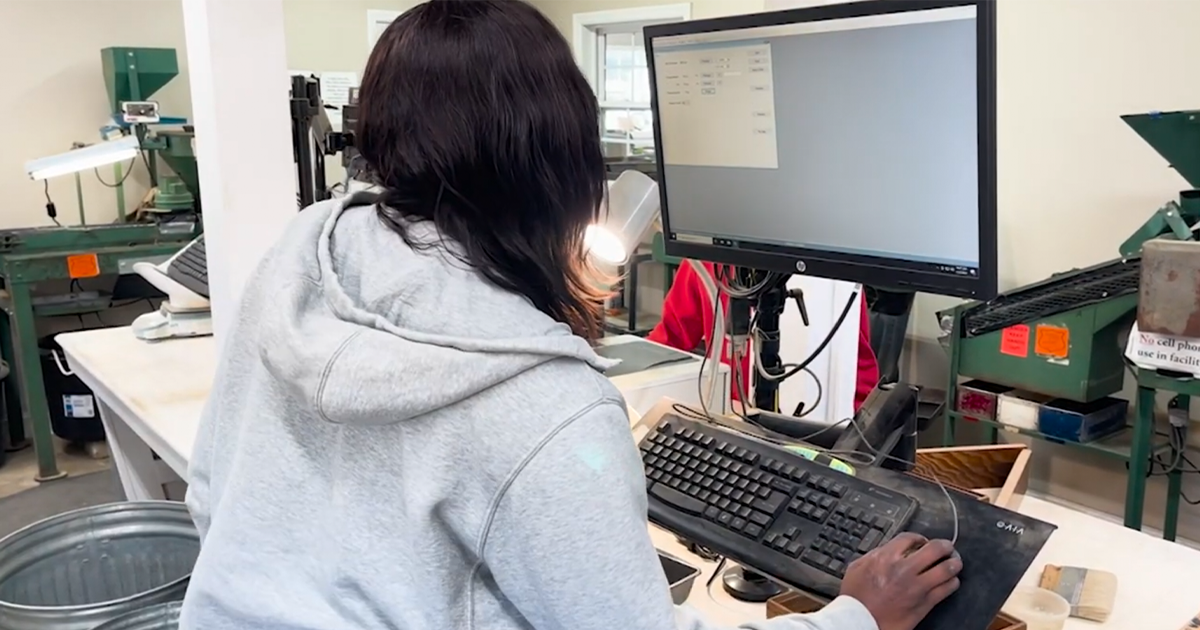Ty Ty, GA |
Each Fall, all across the state, peanuts are dug up, harvested, and taken to buying points that will shell them and market them to their final destination. However, an important part of that process is what’s called grading, which is completed by the Georgia Federal-State Inspection service, that ensures both the grower and shellers receive a non-biased grade that’s used to make sure all parties get compensated fairly.
“We’re an organization founded in 1927 to be a non-biased third party between the buyer and the producer. Mostly in Georgia it’s peanuts, but it’s different commodities also. What we really do is we ensure that the buyer isn’t paying too much for the peanuts and the producer is getting a fair amount for the peanuts as well. So, our organization doesn’t lean toward one side or the other. We’re here to be a nonbiased party,” says Willie Musselwhite, District Manager for the GA Federal-State Inspection Service.
According to Musselwhite, the job is one that’s taken very seriously, as they strive for uniformity so that it’s an equal playing field for everyone, which is why when they take samples from each truck, they work it in a very methodical way to ensure it’s done properly and consistently.
“To the farmer, he wants to get paid. He worked very hard to produce this product and he wants to get paid the ultimate price for his profit. So, once we are going in there and determine the grade, it really determines how much the farmer’s getting paid for his peanuts. So, if it grades really high, he wants a premium grade for his peanuts, but on the other hand, if it were to grade a lower grade, the buyer would not want to pay that premium price for it. So, what we’re doing is we’re telling the farmer, and the buyer; this this is what you have. We don’t set the prices for them, USDA and the buyers, they set the prices, but whatever grade it has that determines the price on the peanut,” says Musselwhite.
Musselwhite says that the grading process is also important because it can help further improve peanut production here in Georgia as it gives researchers, breeders, and growers information that can be useful in the future.
“Georgia produces technically 50 percent of nation’s peanuts and we strive every year to produce different varieties; University of Georgia, yield better yields and make higher quality peanuts. So, we do the research through grading, different trials and all that they’re trying to make a better product. Because after a while, the problems you have now, it fails to grade what it was . We’re always having different things come out the university system and different geneticists are making it happen. It’s very important for the peanut industry to have to have somebody doing that because it’ll provide more income for the farmers in the long run and a better quality peanut for the shellers, the candymakers, and the industry in general,” says Musselwhite.
By: John Holcomb

